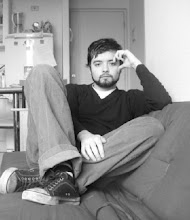How teachers’ language affects children.
By Guillermo González M.
When we listen to children talking to each other, we often hear some bad words that make
us ask ourselves, “Where did he/she learn that?” We often assume that they learned that
from a classmate, or even from TV. In order to avoid that or those words to come up again,
we punish them. That way, we think that the problem has been solved, but, is it? Are
punishments the way to stop bad language?
Once, I had to go to a private school as an observer. My classmates and I split in order to
see more classes in order to share our experiences later. I had to go to a biology class. To
my surprise, the teacher used an obsolete and derogatory term to refer to children with
Down’s syndrome. The teacher referred to them as “mongólicos”, which caused the
children laughter. I thought that she was going to correct herself telling them it was
inappropriate. But she did not. I was shocked. Those children now believe that to say that a
person with Down’s syndrome is a “mongolico” is correct. They do not acknowledge it is
aggressive and hurtful.
Teachers and educators tend to ignore the fact that their use of language is being incorrect. I
am not talking about misspelling or mispronunciation but proper words on a determined
context. Sexism, classism, or racism could be encouraged by us, without even telling. For
instance, if a teacher makes a reference to a child with African ascendancy, by saying “he is
black” instead of saying “Afro-American”, can create the idea of people as a color. This
may be due to the fact that teachers have an inherent socio-cultural background themselves.
That background has obviously influenced them by creating prejudices and preconceived
ideas of the world. It is due to that influence that their duty, as teachers, is to have constant
retro inspections in order to keep themselves aware of what they know and how that affects
They must realize that most of the times children look at them as the
“law”. Whatever a teacher says or does will be correct. Teachers must be aware of their
actions. There is a thin line that divides good and bad.
Knowledge is power. And words are the way how that power it is transmitted. As Ben
Parker, the uncle of the fictional character Spider-Man, said: “With great power, comes
great responsibility”. That responsibility is for us to take and keep, because it is a lie that
sticks and stones can break my bones, but words can never hurt me. It is for all that has
been mentioned that I must say that punishment is not the answer for changing our
children’s language. We as future teachers must be aware of what we say and what we are
teaching. Children are the future and we are their guides.
Subscribe to:
Comments (Atom)
